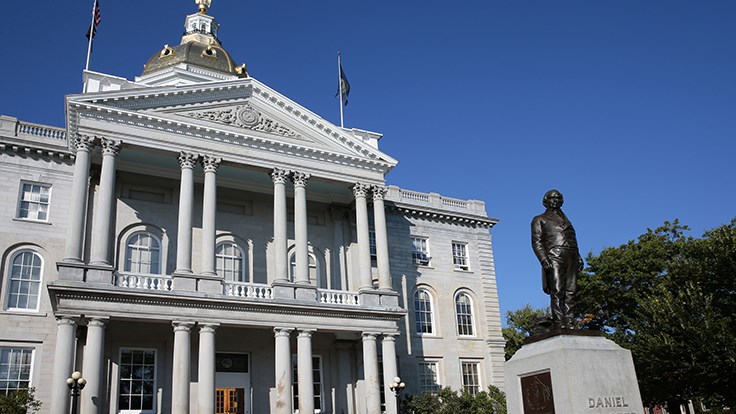The Trump administration (via Attorney General Jeff Sessions) kicked off 2018 by rescinding guidance that essentially let states do what they want with their marijuana policy. At the time, it seemed like an idea cutting against political momentum. Now, it seems, if anything, that the approach has backfired, as states that had previously tabled the issue of marijuana are dusting off old bills and giving them new life.
Surprising even marijuana advocates, for example, New Hampshire suddenly appears on track to decriminalize possession for personal use. It’s particularly surprising because the bill in question, HB 656, had been tabled to the next calendar session on January 3rd. Sessions rescinded the guidance January 5th, and that same day, HB 656 was suddenly before the House. Of particular interest is personal marijuana use, in New Hampshire, was recently made into a minor civil offense instead of a criminal one.
The state will not be legalizing any recreational marijuana sales, it’s important to note. Selling marijuana commercially or running any industrial growing operation will still be a crime in the state. But on a personal level, the bill would completely legalize recreational marijuana, at least on a personal level, under state law. The bill reflects similar legislation in Vermont which was passed just hours after Sessions made his announcement and will likely be signed into law by Vermont’s Republican governor, Phil Scott.Still, New Hampshire may be the most alarming development for anti-marijuana advocates like Jeff Sessions. The state had previously voted down legalization proposals and seemed content to kick the can down the road on the issue for a while yet. Unlike Vermont’s hippie reputation, New Hampshire is generally seen as a more Republican state: In 2016, it only narrowly voted out far-right Senator Kelly Ayotte, and the state legislature is also currently trying to bring back poll taxes to keep college students from voting.
Also arresting is that the state still bans industrial grow operations and sales, which limits the ability of the federal government to intervene in state-level policy. New Hampshire may have seen a chance to set the standard for more conservative states that want to settle the issue and move on to other matters, and that may be the biggest threat to Sessions’ policy.









